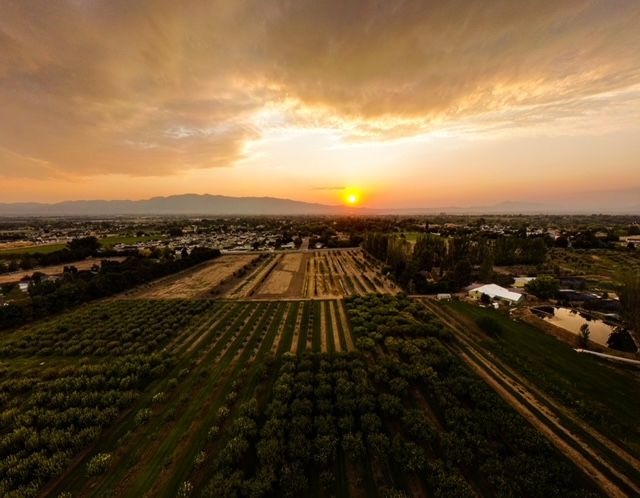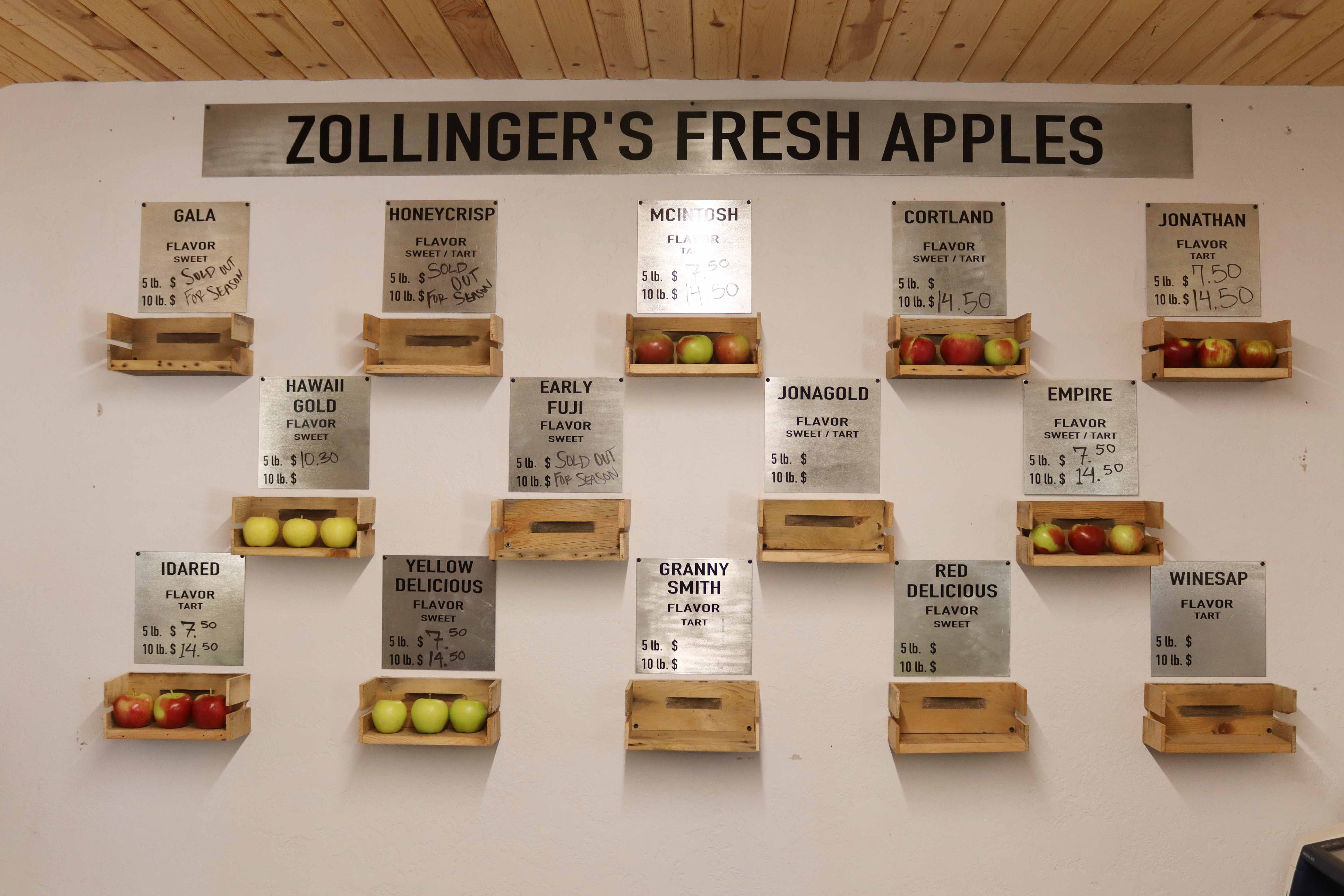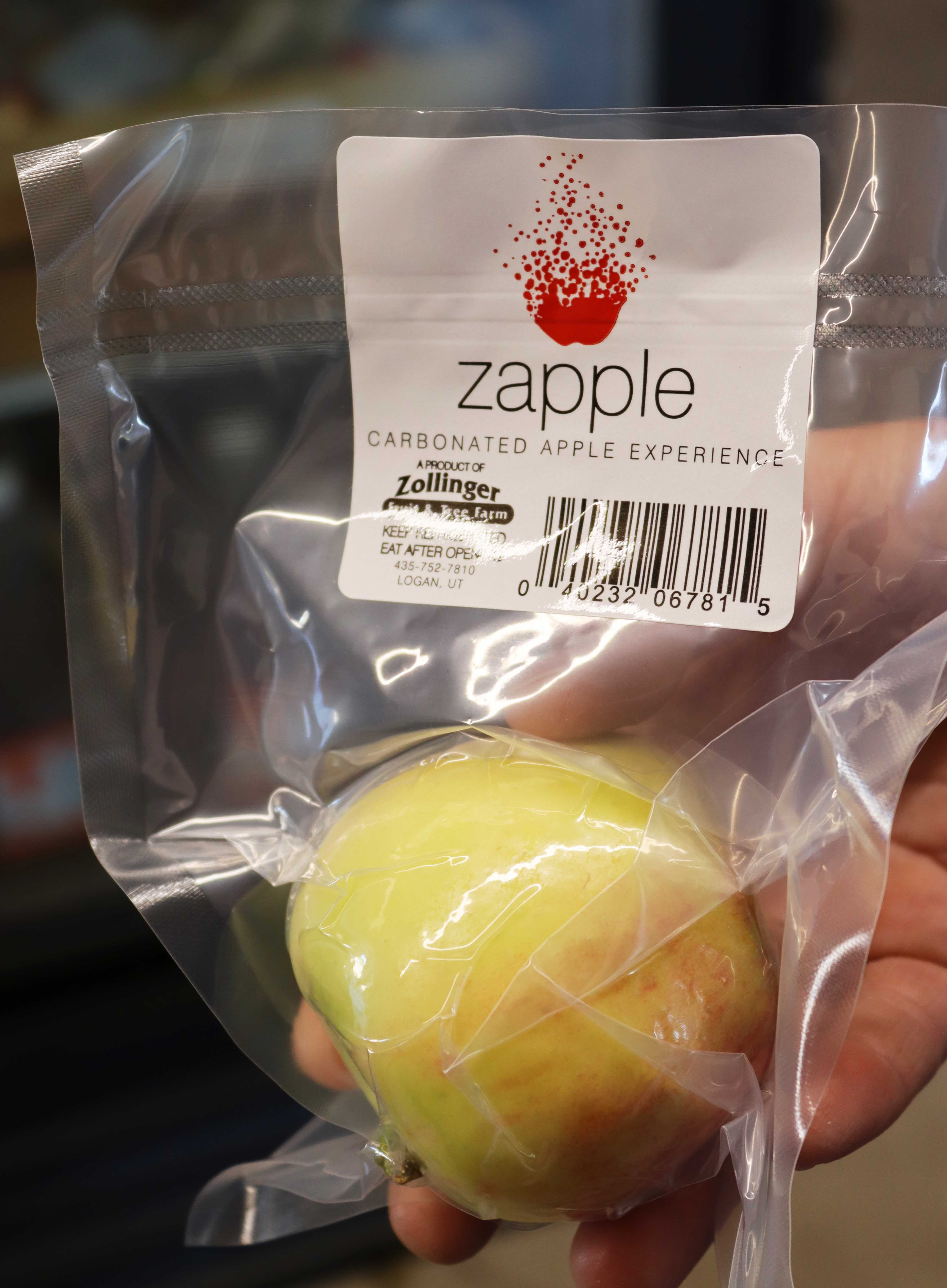Logan Orchard is Apple Haven for Cache Valley Family
Author
Published
10/2/2023
The oppressive heat has begun to break. The nights begin to have some bite to them, and kids begin to bundle up as they head off to school in the morning. You’ve ripped out the withering tomato plants and started pulling out sweaters from boxes in the garage. For some, it’s the beginning of the end of good weather and outside gatherings. But for one element of Utah agriculture, it’s just hitting its prime. This. is. apple season.
While many varieties have been harvested since mid-summer, fall is the season when apples and other hearty produce seem to get the prime space on the table or countertops. Because of the wide range of day and night temperatures, sugar levels in Utah fruit are among the best in the country.

But as has been reported before, some of Utah’s best growing regions for produce have been lost to development or taken out of production. According to American Farmland Trust, 2,000 acres of agricultural land are “paved over, fragmented or converted to use that jeopardizes farming” every day. The organization also claims that in the next 15 years, “one-third of America’s farmland and ranchland will likely change hands”, with the possibility it will be lost to non-agricultural use when sold.
This makes a slice of land in Cache Valley such a rare commodity. Surrounded by nice homes, the Zollinger Fruit & Tree farm – located on the east benches of Logan – has been producing an amazing variety of great-tasting apples since 1904 when William Zollinger was among the first to plant fruit trees in the Cache Valley. Started with pears and tart cherries, the farm is 50 acres in total, with about 20 acres in fruit production. To help preserve its future as a farm, the land was placed into a conservation easement in 2006, thus ensuring it won’t be developed in the future.

Jake Zollinger, now the 4th generation to be working the farm along with his wife, stated the farm now focuses mostly on apples, with a few peaches to complement. Jake’s father, Ron Zollinger, and his grandpa Jesse Zollinger started into the nursery side of the business, growing ornamental trees for homes and commercial/government properties in the early 1990s, but Jake especially loves the fruit side of the business.
“I enjoy hard work and the constant faith that’s needed to keep things going in agriculture,” Jake said. “I like how much change it requires, and the great people we get to work with. They really keep us going.”
The Zollinger farm has a wide variety of apples, with McIntosh, Jonagold, and Honey Crisp among the first to be picked in early September. Many from around Cache Valley and beyond make the trip to Zollingers to grab fresh apples and the family’s famous apple cider. They sell about half of their apples in 5- and 10-lb. bags, with the rest going to stores around the valley, such as Macey’s, Island Market, and even down to Liberty Fresh in Salt Lake City.

While buying fresh apples is a fun fall activity, about 80 percent of Zollinger’s apples are used for cider, which has developed quite a reputation among customers. The family begins making cider around mid-September until about Christmas time.
“The cider is great because it’s such a long-lasting product,” Jake said. “We produce about 600 to 1,000 gallons a week.”
While not giving away the secret recipe, their cider is made from a variety of apples, ranging from tart (Winesap, McIntosh, Idared, Granny Smith, and Jonathan), to sweet (Gala, Hawaii Gold, Fuji, Yellow & Red Delicious); and even those apples that straddle the fence on flavor – Cortland, Empire, Jonagold, and Honey Crisp.
If the idea of sitting around the family table with some cider while it gets cold outside isn’t enough for you to make the drive to Cache Valley right now, the family does have one new product that is sure to pique your interest. It’s called – the Zapple.

No, that’s not a typo, nor is it the latest in a Utah trend of adding the letter Z to other words. The Zapple was created by Jake and his father several years ago and is, in fact, a carbonated apple. Again, no, not a carbonated drink – the family found a way to carbonate the actual apple.
Without revealing an additional trade secret, these apples are sold individually-packed, and when opened and either cut or bitten into, a foaming-like sensation begins. Lasting for approximately an hour after tasting, the fizzy apple is a big-time seller for the family, adding another level of fun to the fall atmosphere.
Whether you’re loading up on apples to put up for winter, imbibing some delicious cider, or venturing into new territory with the Zapple, the Zollinger family is proud to continue their legacy of growing delicious food that betters their community and keeps open space producing great food. To learn more, visit zollingerfarm.com. Enjoy!
Want more news on this topic? Farm Bureau members may subscribe for a free email news service, featuring the farm and rural topics that interest them most!
